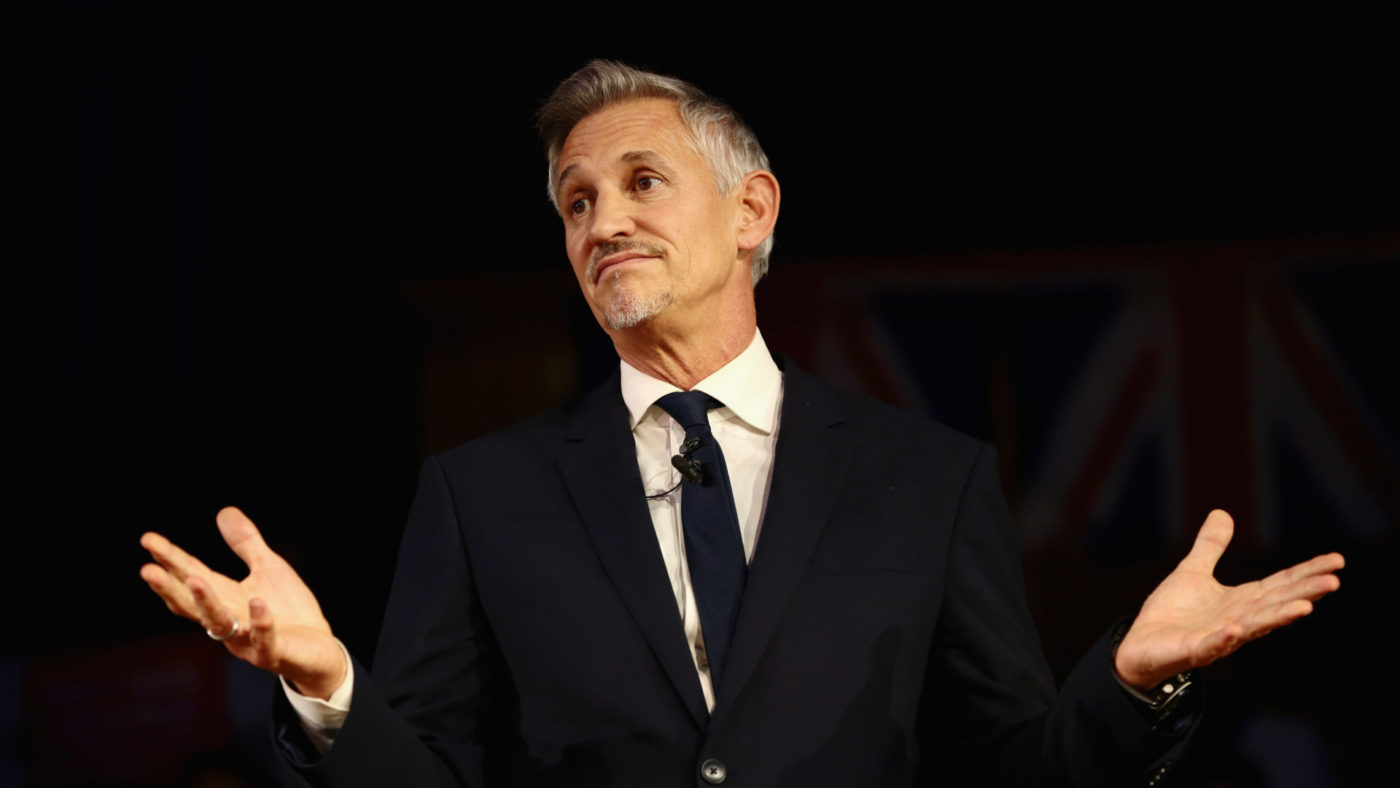Gary Lineker has taken a £400,000 pay cut. His BBC £1.75m salary will fall by 23% over the next five years, bringing his earnings close to that of his highest paid female colleague, Zoe Ball. It’s a nice gesture towards equalising pay between men and women, all part of what the Director General Tim Davie has called “ambitious diversity and inclusion plans”. I’m sure the female staff at our state broadcaster appreciate the solidarity. But it’s an unhelpful precedent. Pay cuts for men send the message to women that they can never be worth as much as their male colleagues; that the only way we’ll ever achieve equality is if others levels down.
We really can’t extrapolate much from Lineker’s particular circumstances, either. Whatever you think about public money being spent on his stratospheric salary, the fact is there’s no one, male or female, who does the exact same job as him. Sure, there are brilliant, hard-working female sports presenters at the BBC, but have any of them scored 48 goals for England? Lineker’s talents are such that he could defect to another broadcaster at any time for a considerable pay rise. He has made a personal choice to defy market forces and accept less than he’s worth – good for him. But how does that help anyone else?
Nor are high salaries at the top of professions the problem when it comes to wage inequality. Indeed, it has been illegal to pay a woman less than a man for the same work since 1970 – the ‘gender pay gap’ we often hear about is actually a measure of median earnings, not a comparison between men and women doing the same jobs.
The real reason women earn less than men is that they do much more part-time work in more junior roles. The BBC itself recognises this and has done more than many other organisations to promote women to executive jobs, but the fact remains that just 40% of the highest paid people at the BBC are women, compared to 55% of the lowest paid.
The figures are far more striking in other industries. Easyjet, for example, has attracted criticism for reporting a ‘gender pay gap’ of more than 50%, and the CEO duly took a £34,000 salary cut in 2018. But again the reason for the pay disparity is that pilots earn significantly more than cabin crew, and just 6% of EasyJet’s pilots are women, compared to 71% of crew. That hasn’t changed just because the boss now earns a bit less.
Executive pay is a distraction from the fact that men and women still follow markedly different career paths. Across all jobs men and women under 40 working full-time earn the same. This is great progress and reflects that women are doing better in education and now have more opportunities than in previous generations. But women still choose different jobs to men. Many more women work in health and social care, for instance, while men are far more likely to be working in skilled trades.
Then when women reach their 30s many bump into the biological reality that having children does mean some time off work. More women than men start working part-time in their 30s in order to look after children. The share of workers who are part-time is highest in the lowest paid professions – so a woman in her 30s looking for a part-time job may find that there are just more vacancies available to her in a lower paid sector. So while men continue clocking up the hours in full-time jobs, gaining more experience and improving their promotion prospects, women are getting left behind.
Tinkering around at the top – setting targets for women on FTSE 100 boards or cutting pay for high profile men – doesn’t help women at the bottom advance in their careers. It’s tokenism, and a £400,000 token for a man who earns £1.75m a year (plus whatever he makes hawking crisps) is cheap at the price.
Click here to subscribe to our daily briefing – the best pieces from CapX and across the web.
CapX depends on the generosity of its readers. If you value what we do, please consider making a donation.


